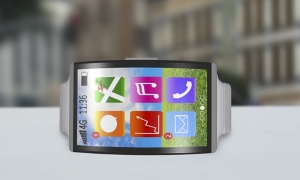Sign up for our free daily newsletter
YOUR PRIVACY - PLEASE READ CAREFULLY DATA PROTECTION STATEMENT
Below we explain how we will communicate with you. We set out how we use your data in our Privacy Policy.
Global City Media, and its associated brands will use the lawful basis of legitimate interests to use
the
contact details you have supplied to contact you regarding our publications, events, training,
reader
research, and other relevant information. We will always give you the option to opt out of our
marketing.
By clicking submit, you confirm that you understand and accept the Terms & Conditions and Privacy Policy
The EU Intellectual Property Office (EUIPO) has rejected a trademark application from a Chinese electronics firm for the figurative mark BOSSPOWERL, finding that it was “free riding” on the reputation of luxury fashion house Hugo Boss’s earlier marks.
In May 2023, the Guangdong-based company Dongguan Dongpai Digital Technology, filed a trademark application for the contested figurative mark under Class 9 for mobile phone chargers and other technology accessories.
Hugo Boss, represented by Dennemeyer in Luxembourg, initiated opposition proceedings. The opposition was based on earlier Hugo Boss EU Trade Mark (EUTM) registrations for the word marks BOSS and for a figurative BOSS mark.
The Opposition Division of the EUIPO found on 28 October that the earlier trademark enjoyed a high reputation in the EU, at least for clothing for men and women in Class 25, and thus enjoyed stronger protection.
Hugo Boss accused the company of taking unfair advantage of its marks’ reputation. It said “the average customer would just assume that the BOSSPOWERL figurative mark is a mark within the broader family of ‘BOSS’ marks” it owned.
Having examined the arguments and evidence, the EUIPO found the fashion house’s arguments “persuasive” and concluded that: “There is a probability that the use without due cause of the contested sign for the contested goods may acquire some unearned benefit and lead to free-riding, that is to say, it would take unfair advantage of the distinctive character or the repute of the earlier trademark.”
EUIPO also ruled that: “Visually and aurally, the signs coincide in the distinctive component ‘BOSS’ and its sound. They differ in the weak at best component ‘POWER’ and the not particularly distinctive letter ‘L’ (and their sound). Visually, the signs also differ insofar the contested sign is slightly stylised. Therefore, the signs are visually and aurally similar at least to an average degree.”
The goods that the contested trademark hoped to cover include Class 9 items like apparatus and instruments for accumulating, generating and storing electricity, communication equipment and audio transmitting devices. Hugo Boss provided evidence that some goods in Class 9 have become complementary to the fashion industry goods.
The luxury fashion house said: “There is a growing demand for fashionable tech accessories. Batteries, chargers and other energy products are essential for powering these devices. Therefore fashion companies have started to cater to this demand and provide consumers with functional, yet fashionable and stylish electronic devices and accessories.”
The EUIPO agreed, noting that “it is more and more frequent for fashion designers to also offer merchandising and other gadgets designed with their trademarks because, as the evidence provided by Hugo Boss claims, ‘technology is reshaping fashion industry’”.
The court concluded: “In light of the overlap of the relevant public, considering the similarity of the signs and the high degree of recognition proven by the earlier mark, a link with these goods cannot be excluded.”
Dongguan Dongpai Digital Technology was represented by Vilnus-based IP firm Metida.
Email your news and story ideas to: [email protected]











